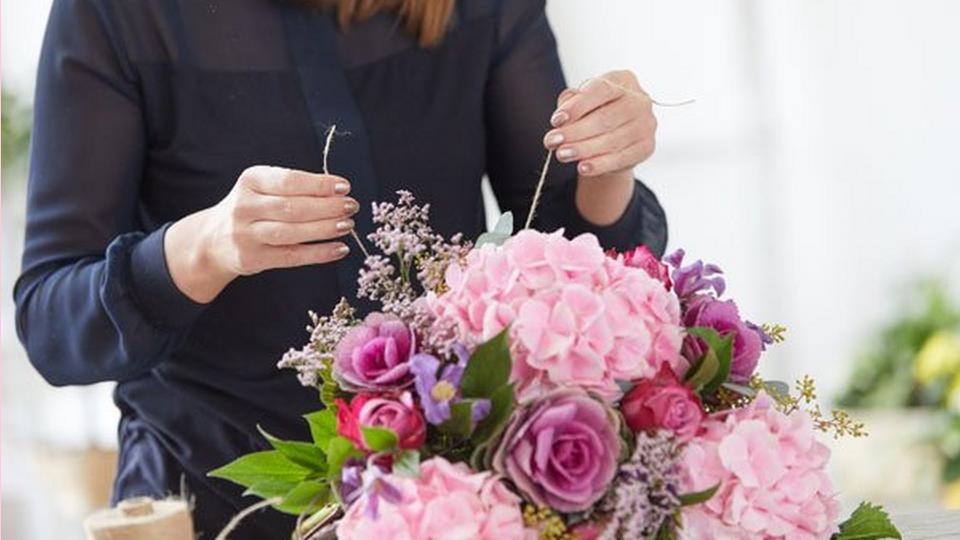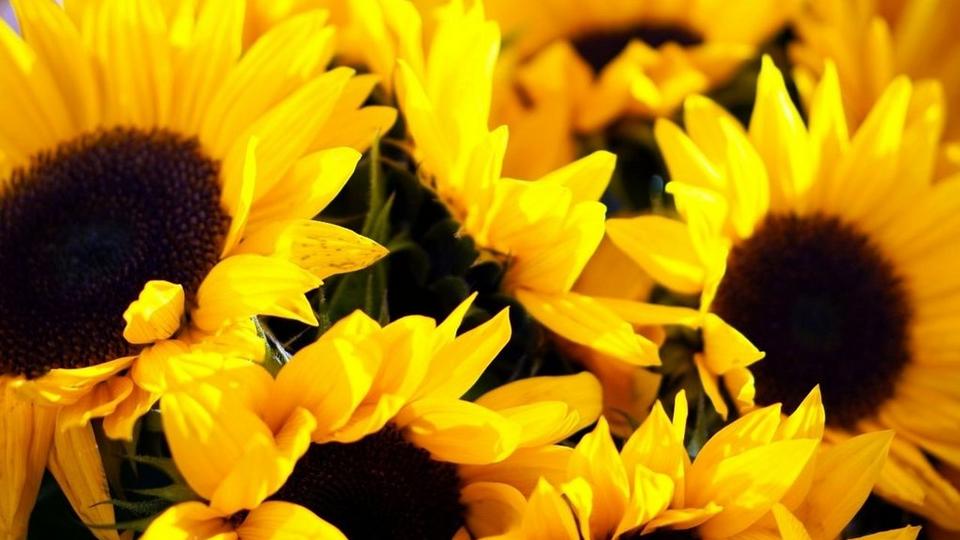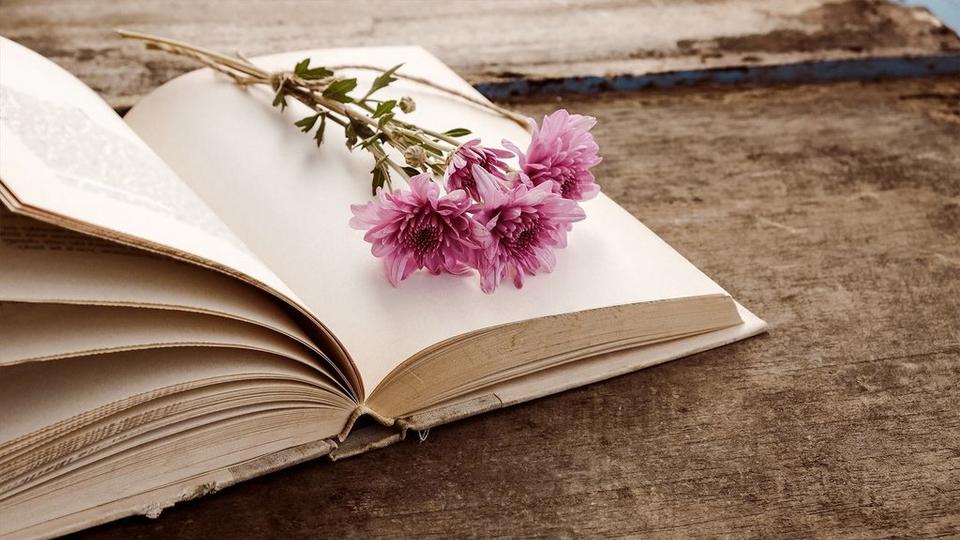Blue Flowers Names: Explore Beautiful Blue Blooms and Their Meanings
A team of flower, style and design experts and enthusiasts. We love sharing advice on all things floral and offering top tips on expressing yourself and your emotions.
A team of flower, style and design experts and enthusiasts. We love sharing advice on all things floral and offering top tips on expressing yourself and your emotions.
Blue flowers hold a unique kind of magic. Cool, calming and quietly powerful, they carry with them a sense of serenity and grace. Whether it’s a soft sky-blue hydrangea or a deep indigo iris, these blooms speak a language of peace and presence.
Each one tells a different story; of friendship, trust, remembrance or deep emotion. And when you send them? You’re saying more than words ever could. From spring to winter, we’re exploring the most beautiful blue flower names and meanings, plus when and why to send them.
What Do Blue Flowers Mean?
Blue flowers are often tied to feelings of calm, honesty, and inner peace. They’re tranquil and soothing - like a deep breath after a long day. But there’s more to them than meets the eye. Over time and across cultures, their meaning has evolved and expanded.
They’ve symbolised:
- Serenity & tranquillity
- Trust & openness
- Mystery & inspiration
- Love & desire
- Loyalty & sympathy
- Heroism & honesty
Blue flowers feature heavily in art and literature, especially during the Romantic and Renaissance periods. Their connection to the sea and sky gives them a depth and expansiveness that no other bloom can match.
So whether you’re saying “I believe in you,” “I’m thinking of you,” or “I love you,” blue flowers say it with quiet power.
Why Are Blue Flowers So Rare?
If you’ve ever wondered why blue flowers catch the eye so easily, it’s because they’re generally rare in nature. In fact, no plant produces a true blue pigment. What we see as blue is usually the result of plant pigments (like anthocyanins), soil conditions, and even how light reflects off the petals.
This makes blue blooms extra special, and is part of what gives them that air of mystery and uniqueness. It also means that sending blue flowers is a powerful way to show someone how truly one-of-a-kind they are.
Blue Flower Names By Season
Spring blue flowers
Spring brings renewal, and there’s not much better than a burst of blue blooms to brighten the season.
Shop spring flower arrangements
Hyacinths
Fragrant and full of charm, hyacinths symbolise sincerity and playfulness. Their striking blue hue makes them a standout in spring gardens and bouquets.
Top tip: Pair hyacinths with tulips for a springtime arrangement that’s full of cheer.
Irises
With their elegant petals and rich colour, blue irises represent hope and wisdom. A timeless favourite that’s full of soul.
Top tip: Send irises to someone who is embarking on a new adventure or facing a big decision in their life.
Bluebells
A quintessentially British bloom, bluebells symbolise humility and everlasting love. You’ll often see their delicate beauty carpeting woodland floors, especially from April to May.
Top tip: Perfect for romantic gestures or a nod to heritage and home.
Myosotis (Forget-Me-Not)
True to their name, these tiny blue blooms symbolise remembrance and true love.
Top tip: Include them in sympathy bouquets or memory gardens.
Agapanthus (African Lily)
Known for their tall stems and globe-like clusters, agapanthus flowers symbolise love and beauty.
Top tip: Their sculptural shape makes them ideal for contemporary arrangements.
Summer blue flowers
Summer’s bold energy is matched by blue blooms that radiate confidence and colour.
Hydrangeas
Fluffy, full, and fabulous; hydrangeas symbolise understanding and heartfelt emotion.
Top tip: Hydrangeas’ changing colour is influenced by soil pH, and acidic soil will make them turn more blue.
Delphiniums
Delphiniums are tall, striking blooms that stand for strength and dignity.
Top tip: Delphiniums are your go-to when adding height to any bouquet or garden border.
Allium (Flowering Onion)
Spherical and structural, alliums represent unity and patience.
Top tip: Dry them to enjoy the architectural beauty of alliums all year long.
Eryngium (Sea Holly)
With its thistle-like texture and silvery-blue hue, sea holly means independence and attraction.
Top tip: Ideal for wild or rustic arrangements.
Lavender
While technically more purple, blue-toned lavender symbolises calm and devotion.
Top tip: Tuck sprigs into a bouquet for scent as well as symbolism.
Autumn blue flowers
As days shorten, these autumn blue blooms bring a fresh, calming contrast to fiery foliage.
Asters
Asters are daisy-like flowers that symbolise love and wisdom.
Top tip: Add to a mixed autumn bouquet for a pop of peace.
Geraniums
Blue varieties (like ‘Johnson’s Blue’) represent comfort and true friendship.
Top tip: Geraniums are famously hardy and reliable; a real gardener’s favourite.
Lobelia
Vibrant and trailing, lobelia symbolises love and admiration.
Top tip: Beautiful in hanging baskets or trailing arrangements.
Sedum
These late bloomers represent peace and perseverance.
Top tip: A perfect choice for eco-conscious planting.
Plumbago
With soft sky-blue petals, plumbago symbolises trust and friendship.
Top tip: Great in containers or climbing over trellises.
Winter blue flowers
Even in the coldest months, blue flowers remind us there’s still beauty to be found.
Pansies
Symbolising free thought and remembrance, pansies bloom even in frost.
Top tip: Send a pot of pansies to brighten a chilly window sill.
Anemone
Delicate but dramatic, blue anemones represent anticipation.
Top tip: Use in winter weddings or elegant arrangements.
Glory of the Snow
One of the earliest bloomers, they symbolise hope and resilience.
Top tip: Plant in clumps for a magical winter display.
Violas
Small but mighty, violas represent affection and thoughtfulness.
Top tip: Their edible petals make them perfect for cake toppers or cocktails.
Scilla
Star-shaped and sweet, scilla flowers represent loyalty and spring’s return.
Top tip: Ideal for naturalising in lawns and under trees.
For a new baby
Soft blue blooms are a classic choice to celebrate a new arrival; especially a baby boy.
For a wedding
As part of the traditional “something blue,” these blooms symbolise fidelity, commitment, and calm joy.
For an anniversary
Blue flowers symbolise loyalty and lasting love, making a perfect nod to years shared between loved ones.
To say get well soon
Calming blue tones promote rest and healing; a gentle way to show you care.
To say congratulations
Blue blooms say, “You’ve done it!” with style and sincerity.
Blue Flower Names FAQs
Delphiniums and forget-me-nots both symbolise romantic devotion, and are some of our favourite choices when it comes to romantic blue flowers.
Very few flowers are truly blue - most are violet or purple-toned. Blue hues in flowers often come from complex pigment chemistry.
Want blue blooms that keep their colour and thrive year-round? Here are a few tips:
-
Mind the soil: For blue hydrangeas, aim for acidic soil (pH below 7) to maintain their colour.
-
Sunlight counts: Most blue flowers prefer full sun or partial shade, but always double-check the care needs of your specific plant.
-
Seasonal planning: Choose a mix of spring, summer, autumn, and winter bloomers for a year-round display in your garden.
-
Pollinator-friendly: Opt for varieties like lavender, cornflowers, and salvia to invite bees and butterflies.
- Bluebells
- Hyacinths
- Delphiniums
- Forget-me-nots
- Cornflowers
- Asters
- Lavender
Geraniums and plumbago are both lovely choices to symbolise trust and lasting friendship.
- Hydrangea
- Iris
- Bluebell
- Lavender
- Delphinium
- Forget-me-not
- Aster
Hydrangeas change colour based on their soil acidity. Acidic soil = blue hydrangeas, and alkaline = pink!
Find the Perfect Gift with Blue Flower Meanings
Blue flowers are full of feeling. From fresh spring forget-me-nots to elegant delphiniums in summer, there’s a bloom for every season and sentiment. So next time you want your gift to say more, why not say it in blue?



